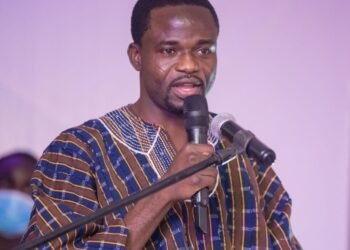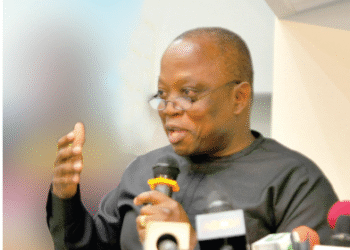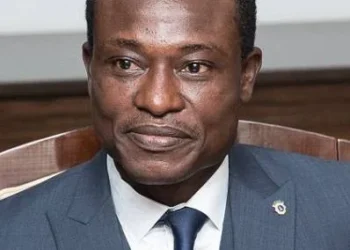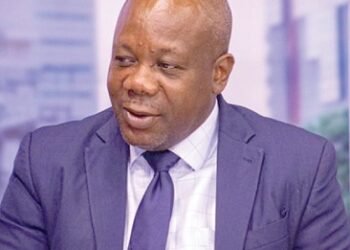Mensah Thompson, the Executive Director of the Alliance for Social Equity and Public Accountability (ASEPA) has offered a robust endorsement of a significant policy proposal by the former President of Ghana and current flagbearer of the National Democratic Congress (NDC), John Dramani Mahama.
The proposal, unveiled during the launch of the NDC Youth Manifesto, promised to remove all academic fees for first-year university entrants across the country. This policy has sparked considerable debate, but ASEPA’s backing highlights the proposal’s potential to advance educational equity in Ghana.
In a statement, Mensah Thompson outlined the reasons for ASEPA’s support, emphasizing the promise as a logical extension of the Free Senior High School (SHS) policy. The Free SHS initiative, introduced by the current government, has significantly increased enrollment in secondary schools, enabling students from economically disadvantaged backgrounds to pursue education without financial barriers.
“In this era where the basic qualification to access most formal employments is a University Degree, it makes no sense to educate poor children free of charge and not offer an opportunity for them to access tertiary education with equal ease.
“So, [that] they do not end up redundant and the resources the State spent on them at the SHS level going waste.”
Mensah Thompson, the Executive Director of ASEPA
Mensah Thompson highlighted several instances where students with excellent grades were left without the means to continue their education. In such cases, it often falls to charitable individuals to raise funds or sponsor these students.
The proposed policy by Mahama, according to Mensah Thompson, would eliminate the need for such desperate measures. Under Mahama’s plan, once students pass their exams and gain admission to a university, the state would cover their entrance fees, leaving parents and guardians responsible only for the students’ basic needs.
ASEPA’s Executive Director argued that the proposal would not only relieve parents of the financial burden associated with university education but also ensure that the resources invested in students at the SHS level are not wasted.
Education, particularly at the tertiary level, is increasingly seen as a basic requirement for securing formal employment. By removing financial barriers to university entry, the policy would provide a more equitable opportunity for all students, regardless of their economic background.
The Cost: A Worthwhile Investment

However, as with any policy of this magnitude, the question of funding looms large. Critics have questioned the feasibility of the promise, particularly in light of Ghana’s current economic challenges.
Mensah Thompson, in his statement, provided a breakdown of the potential costs. He estimated that for the 2023/2024 academic year, the average cost of academic fees per student is approximately GHC2,200. With around 120,000 to 140,000 students being admitted to universities annually, the total cost to the state would be between GHC275 million and GHC350 million each year.
Mensah Thompson further argued that this cost is manageable within the framework of the Ghana Education Trust Fund (GETFund).
“At the current status of the Ghana Education Trust Fund, this would be 14-15% of GETfund revenue.
“The good thing is the NDC has also promised to de-collateralize the GETfund, if the NDC successfully de-cap the GETfund, it would cost us a paltry 4% to fund this free academic entrance fees program for all first years.”
Mensah Thompson, the Executive Director of ASEPA
ASEPA argued that this is a realistic and sustainable proposal, one that can be implemented without significant constraints. The potential to ease the financial burden on parents and guardians while ensuring that more students can access higher education is a strong justification for the policy.
Beyond the financial logistics, the proposal represents a broader vision of social equity and opportunity. Education is a powerful tool for social mobility, and by removing financial barriers to university entrance, the state would be investing in the future of its youth, particularly those from marginalized communities.
Mensah Thompson asserted that this policy, if implemented correctly, could be one of the most impactful social interventions in Ghana’s recent history.
ASEPA’s endorsement of Mahama’s promise is rooted in the belief that the Ghana Education Trust Fund Levy, paid by all citizens, should benefit everyone equitably. By funding university entrance fees, the state would be ensuring that the resources collected from citizens are used in a manner that promotes collective well-being and national development.
READ ALSO: Ghana’s Aquaculture Sector Set for Transformation with Israeli Technologies























